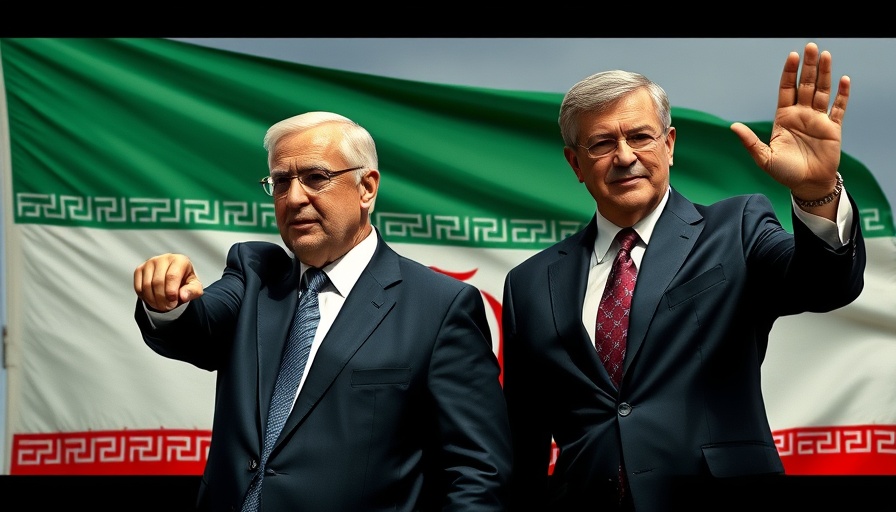
The Tensions of Tomorrow: Iran's Dilemma
As international diplomacy stands on a precipice, the complexities surrounding Iran's nuclear negotiations have come to the forefront once again. Iran and the United States, after a decade's silence, took a crucial step towards dialogue by meeting in Oman. This signifies the urgency felt by Tehran as it grapples with mounting pressures from multiple fronts.
The Four Critical Deadlines: A Race Against Time
The looming deadlines facing Iran—a two-month ultimatum from U.S. President Donald Trump, the threat of renewed European sanctions by June, and the expiration of the original Vienna Accord in October—represent a multifaceted crisis. These deadlines collectively create an environment where Iran must reconsider its approach to negotiations. With economic strains deepening, the Iranian leadership recognizes the need to respond, despite their weakened position.
Why is Iran Open to Negotiations now?
With the collapse of its proxies in neighboring regions, Iran's bargaining power has diminished significantly. The economic crisis, exacerbated by prior sanctions and mismanagement, positions Tehran at a disadvantage. Observers note that this backdrop creates a pressing incentive for Iran to pursue talks with the U.S., seeking relief from sanctions that have crippled its economy.
The Role of Global Politics in Iran's Negotiation Stance
This new dialogue comes amid a shift in global political dynamics. As the U.S. and its allies stand firm in their stance against Iran's nuclear ambitions, Tehran finds itself increasingly isolated. However, engagement and dialogue can pave the way for understanding and potential peace, resonating with the ethos of socially conscious Christians who advocate for humanitarian approaches to international conflicts.
What Lies Ahead? Possible Outcomes of the Negotiations
While optimism surrounds the potential for a new agreement, the road to re-establishing trust is fraught with challenges. For believers and advocates of interfaith dialogue, fostering understanding and compassion while navigating the geopolitical landscape is paramount. The outcomes of these negotiations could significantly impact not only regional stability but also the broader spectrum of human rights and religious freedom within Iran.
In summary, as Iran faces these unprecedented pressures, the message to socially aware Christians and informed advocates is clear: stay engaged and informed. These negotiations are not just political machinations; they reflect deeper issues of justice, healing, and ultimately, the hope for peace in a region marked by turmoil.
Call to Action: We invite you to stay tuned as these developments unfold and consider how you can support efforts that promote peace and understanding in the Middle East.
 Add Row
Add Row  Add
Add 








 Add Row
Add Row  Add
Add 

Write A Comment